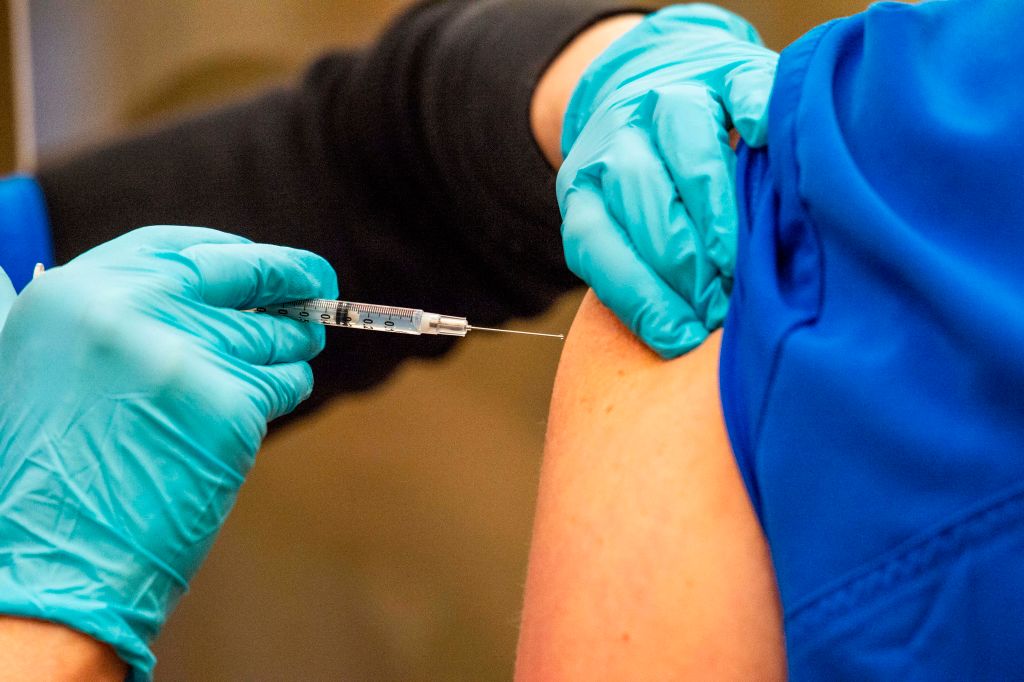FDA rejects potential changes to COVID-19 vaccine regimen


A free daily email with the biggest news stories of the day – and the best features from TheWeek.com
You are now subscribed
Your newsletter sign-up was successful
The Food and Drug Administration has shot down suggestions to change COVID-19 vaccine regimens "at this time."
FDA officials in a statement rejected for the time being numerous ideas that have been floated amid the slow U.S. vaccine rollout, including halving doses or delaying second doses so more people can receive the first one sooner, Axios reports.
"We have been following the discussions and news reports about reducing the number of doses, extending the length of time between doses, changing the dose (half-dose), or mixing and matching vaccines in order to immunize more people against COVID-19," the FDA said. "These are all reasonable questions to consider and evaluate in clinical trials. However, at this time, suggesting changes to the FDA-authorized dosing or schedules of these vaccines is premature and not rooted solidly in the available evidence."
The Week
Escape your echo chamber. Get the facts behind the news, plus analysis from multiple perspectives.

Sign up for The Week's Free Newsletters
From our morning news briefing to a weekly Good News Newsletter, get the best of The Week delivered directly to your inbox.
From our morning news briefing to a weekly Good News Newsletter, get the best of The Week delivered directly to your inbox.
The FDA officials go on to say that making changes of this kind "without appropriate data" could place "public health at risk," and the data "continue to support" administering Pfizer and Moderna vaccine doses at the previously-specified intervals.
Operation Warp Speed chief adviser Dr. Moncef Slaoui previously said the U.S. was looking at potentially administering two half doses of Moderna's vaccine to some Americans in order to immunize "double the number of people with the doses we have." And officials in Britain have said "they will allow more than 21 days between doses of Pfizer's vaccines and would consider allowing people to get vaccinated with two different vaccines," CNN reports.
But Dr. Anthony Fauci, the nation's top infectious disease expert, said Monday "there really are no data on what happens if you delay the second dose by three months or four months or two months," per The Washington Post. He added, "It's fraught with some danger when you're making a decision about the regimen you're going to use when you don't really have a considerable amount of data."
A free daily email with the biggest news stories of the day – and the best features from TheWeek.com
Brendan worked as a culture writer at The Week from 2018 to 2023, covering the entertainment industry, including film reviews, television recaps, awards season, the box office, major movie franchises and Hollywood gossip. He has written about film and television for outlets including Bloody Disgusting, Showbiz Cheat Sheet, Heavy and The Celebrity Cafe.
